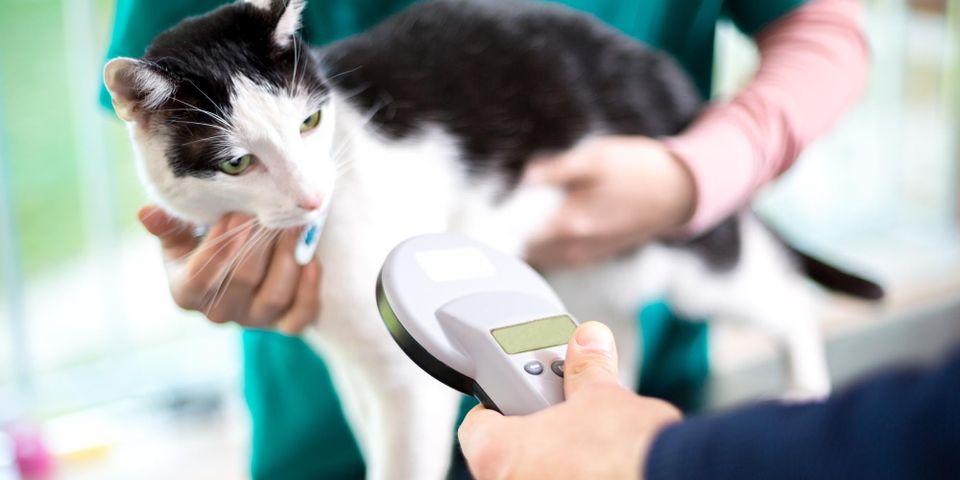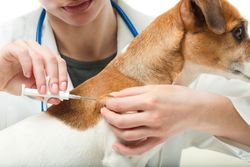
Microchipping a pet significantly increases the chances that an owner will be reunited with their animal if the pet gets lost. When a cat or dog is found and taken to a shelter or veterinarian, it is scanned for a microchip. If a chip is discovered and registered with the correct information, the owner can quickly be contacted.
What Do Pet Owners Need to Know About Microchipping?
How Microchipping Works
Microchips are small, electronic chips that are encased in glass cylinders and approximately the size of a grain of rice. A veterinarian uses a needle to inject the microchip under the animal’s skin on their back, between the shoulder blades. The procedure is fast and painless, doesn’t require anesthesia, and can be done during a routine visit.
 When a scanner is passed over the pet’s back, it emits radio waves that activate the chip. The microchip transmits and displays an ID number on the scanner. This can be used to identify the pet and its owner on the chip’s corresponding database.
When a scanner is passed over the pet’s back, it emits radio waves that activate the chip. The microchip transmits and displays an ID number on the scanner. This can be used to identify the pet and its owner on the chip’s corresponding database.
Why It’s an Essential Investment
Microchipping increases the likelihood you will be reunited with your pet should they ever escape and get lost. After your pet is microchipped, you can register the identification number with the company’s online database. This allows you to list your personal contact information, as well as information about your pet, including age, coloring, known allergies, identifying markers, and their picture. Microchip registries are available to access 24/7.
While it should never be the only form of identification for a pet, a microchip is a tamper-proof and permanent way to identify an animal if their collar comes off. Ask your veterinarian to scan for your pet’s microchip during their annual exam to verify it hasn’t been damaged and still functions.
If your pet needs microchipping, trust Dr. Robin’s Housecall Veterinary Services in Denver, CO, to help. Dr. Robin Pongracz offers convenient mobile veterinary services for pets who may have a hard time traveling to the office. She also provides a wide range of preventative services for dogs and cats, including ear cleanings and deworming treatments. Call (970) 217-1260 or visit the website to learn more about maintenance care and other available services.
About the Business
Have a question? Ask the experts!
Send your question

